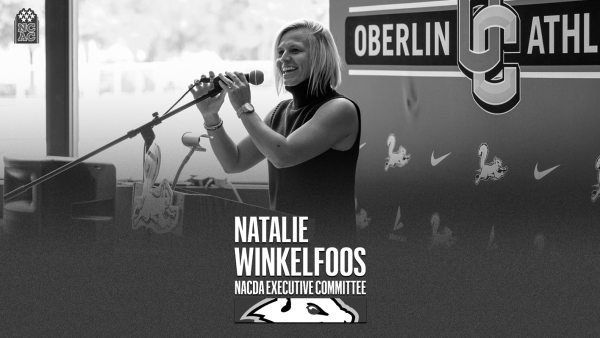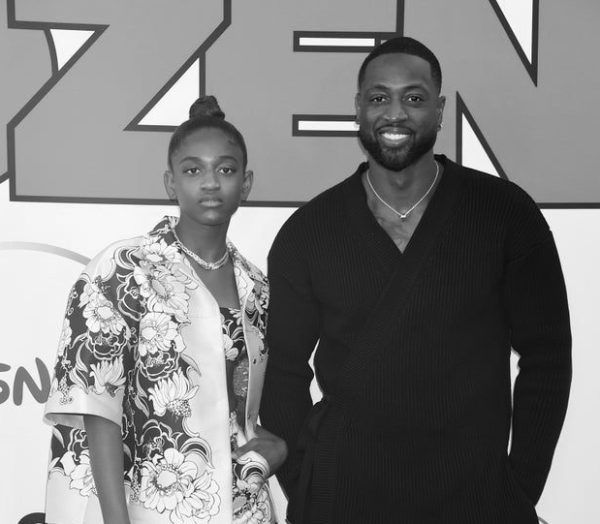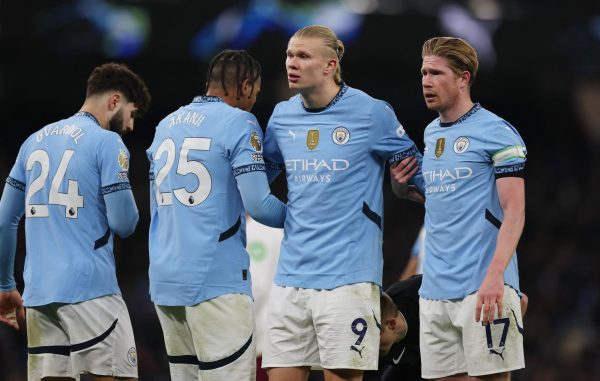Liberal Stereotyping Undercuts Sportsmanship
A tennis court is 78 feet long. A block of blue space striped with white lines stretches between each player as we wage an intense, individual war. Pumping adrenaline and high stakes combined with a questionable line call can make things personal, causing us to label an opponent as “cheater,” or worse, “bitch.” Sometimes, in the heat of battle, we think only of our differences from the person on the other side of the net.
My differences with my opponent from Centre College revealed themselves off-court, after our singles match, when she pulled on a light blue t-shirt that read “TRUMP: MAKE AMERICA GREAT AGAIN” in block letters colored with the American flag.
“Wow, look.” I tapped my dad’s arm and tried to subtly point at my opponent’s new layer of clothing, pulled over her “Colonel Tennis” sweats.
My mom noticed too and immediately shook her head, insisting, “You know she’s just doing that because she’s at Oberlin.” Oberlin’s leftist reputation caused my mom to immediately attribute the gesture to a desire to provoke. “It’s a middle finger to the liberals.”
Another parent commented, “It’s just disrespectful.”
My teammates showed similar disdain, and one ardently anti-Trump teammate met her eyes with a glare across the court.
Several moments later, the opponent snapped back, “I thought this was a safe space.” The liberal buzzword jokes continued, as we overheard another Centre player watching the number 6 singles match laughingly comment, “I can’t believe she won that point. I’m triggered. Where’s the trigger warning?”
78 feet. 24 meters. It’s really a negligible distance, especially because we often close the gap. We dash to the net to retrieve a drop shot. We exhale compliments like “great point.” We ask each other about the score, the format, the location of the third ball, and even slip in some small talk about last year’s season or the matches that lie ahead. Implicit in those conversations is the sense that the two of us have just shared a unique, hours-long mental and physical battle. That cultivates a sense of respect unlike any other.
I considered sitting down next to my former opponent and just opening a dialogue, like the ones we had shared on court. I had so many questions. What statement was she trying to make? Did she even support Trump? If so, why? What bothered her about safe spaces and trigger warnings? Would she have done the same thing if she had won? Why did she decide to wear that shirt, at Oberlin, over her uniform? Did her political identity supersede her team identity? Hadn’t Trump already won?
Instead, I said nothing. While teammates, parents, and friends labeled her “rude” and “deplorable,” I couldn’t help feeling uneasy as they employed the stereotype of the irrationally angry, rural white person from “Trump country.” As a West Virginian myself, I know that those cliches are misleading. But just because my opponent represented Centre College and showed support for our controversial president, those around me jumped to the conclusion that she was uninformed at best, spiteful and racist at worst.
At the same time, the Centre players sitting behind us in the bleachers likely harbored similar, converse thoughts. They probably believed Oberlin was a hub of reactionary liberals, a school that silences the other side. Maybe they jeered that we were “snowflakes,” too scared of confrontation and too politically correct to say anything about the shirt.
Such stereotyping, personal attacks, and pettiness keep us thinking only of what divides us. We drift ever further apart — picking neighborhoods, schools, social circles that surround us with those who reinforce our political beliefs. We continue to curate our social media feeds to serve as glorified echo chambers. We turn to the same media outlets and eschew all others. We wage wars over any and every policy area — immigration, gun laws, healthcare, foreign policy, the environment, the budget — and find no common ground. When it comes to politics, no one is willing to extend a hand and meet in the middle.
Sports are supposed to unite people. But that Saturday evening, we packed up our tennis bags with the same assumptions that we had carried in and returned to separate lives, separate sides.
78 feet felt further than ever.








